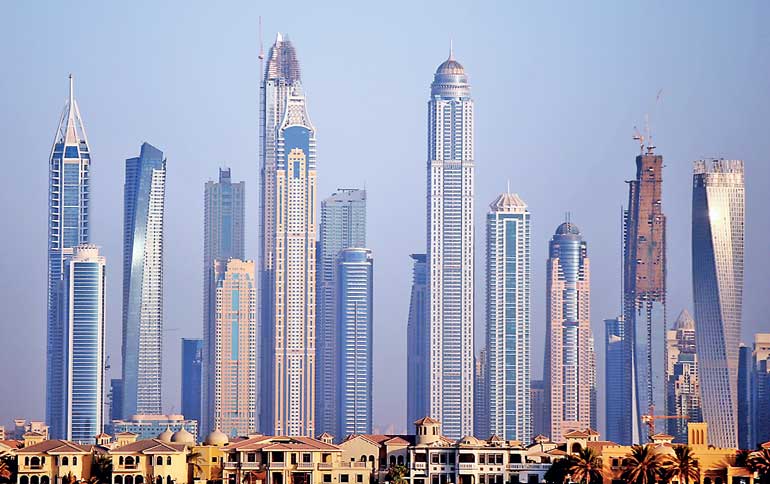Thursday Feb 19, 2026
Thursday Feb 19, 2026
Tuesday, 2 January 2018 00:00 - - {{hitsCtrl.values.hits}}

More buildings of 200-m height or greater were completed in 2017 than in any other year, with a total of 144 completions, marking the fourth consecutive record-breaking year, according to a recent report by The Council on Tall Buildings and Urban Habitat (CTBUH).
That’s a remarkable increase of 95% from 2013, when only 74 buildings of more than 200 meters were completed, stated CTBUH in its annual web report, titled “the 2017 Tall Building Year in Review.”
Notably, 2017 was also the most geographically diverse year in terms of the number of cities and countries that completed 200-meter-plus buildings, with 69 cities across 23 countries represented in the data, up from 54 cities across 18 countries over last year.
A total of 28 cities and eight countries completed their tallest building this year. Once again, China completed a majority of the 200-m-plus buildings that finished in 2017, about 53% of the total with 76 completions.
Although this is a slight decrease from 2016, when China completed 83 such buildings, or 65% of the global total, China is still by far the world leader in skyscraper construction. In fact, the city with the most 200-plus-meter building completions, Shenzhen, finished 12 buildings, or 8.3% of the year’s total – more than any other country on the list, except China.
The US completed the second-greatest number of 200-meter-plus buildings of any country, with 10 buildings finished in 2017, stated the CTBUH report.
On the new findings, CTBUH executive director Antony Wood said: “The data from 2017 shows a continuation of the trend towards a greater global proliferation of skyscraper construction.”
“High-rise construction is no longer confined to a select few financial and business centres, but rather is becoming the accepted global model for densification as more than one million people on our planet urbanise each week. Thirteen cities saw their first 200-meter-plus high-rise completion in 2017, in addition to the 28 cities and eight countries that saw their tallest building completed this year,” he added.
The functional share of tall buildings in 2017 proved to be among the most interesting discoveries in the study, as the data showed a large shift from all-office and mixed-used function to all-residential towers.
Buildings with all-residential function spiked to 49 completions, or 34% of the total, up from just 19, or 15% of the total last year. At the same time, all-office building completions fell to 56, or 39% of the total, compared to 67, or 52% of completions in 2016.
“It is tempting to speculate that we are now seeing the built results of a full-blown recovery from the 2008 economic crisis, as greater confidence in single-function programs sparks a resurgence in speculative residential development,” remarked Steve Watts, the chairman of CTBUH.
“Further, there’s been growing interest over the past several years in residential real-estate investment by absentee owners as a wealth management strategy. However, market dynamics vary greatly between regions, so it’s likely there are other factors to the story,” he added.
Of the 144 buildings of 200-m or greater height completed in 2017, 74 of them (about 51%) used concrete as the main structural material; while 64 (around 44%) used a composite of steel and concrete.
The significant use of concrete can be attributed to a combination of concrete’s relative ubiquity and lower cost in many regions, as well as its comparative simplicity in construction, which would increase its appeal in regions with lower-skilled labour pools, said the report.
“In 2017, two buildings had all-steel construction, consistent with the 2016 figures,” Watts said. “As of this writing, there are only seventeen 200-meter-plus buildings currently under construction that employed all-steel structural systems,” he added.